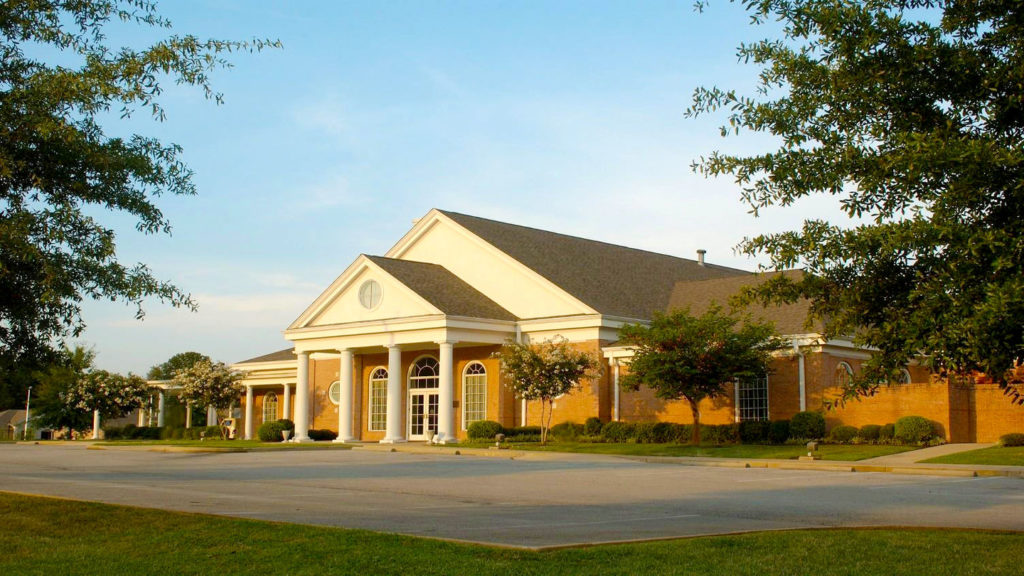
Randy Nash is bracing for the day the virus inevitably ends up in his office.
He runs Sumner County Funeral and Cremation Services. From his office, he says, he can see the Gallatin Center for Rehabilitation and Healing, where nearly 100 patients recently tested positive for COVID-19.
“Every funeral home in this county, every funeral home in Tennessee will be affected by what’s going on,” he says. “I know that we most certainly will see, unfortunately, several deaths probably from that facility here in Gallatin. And if it happens anywhere else in a facility like that, it definitely shoots that number up.”
Funeral homes are essential, and they’ll continue operating even as other businesses close. But memorial services already look drastically different. With gatherings limited to 10 people, funeral homes are turning to small or livestreamed services, or allowing visitation in shifts.
Many have turned to Facebook to post videos. George A. Smith and Sons Funeral Home in Jackson began offering livestreaming last month as social distancing practices became increasingly necessary.
“We’re doing our very best to make our services and funerals available to those that are observing social distancing or are not able to come or don’t feel comfortable to come to a gathering,” funeral director David James Plunk told viewers during a test of the home’s Facebook live video capabilities.
Donna Corlew experienced these changes after her great uncle passed away recently. He has lots of family members who would have come together in person to celebrate his life, but under the current circumstances, the service was limited to immediate family only.
“When it’s the time for a funeral, we’re all coming together, being there for each other ,and we just couldn’t do that,” she says. “My grandmother — that was her brother, she’s 90 — we couldn’t even go to her house to be with her during this time, because we didn’t want to bring anything over there to her.”
The family chose not to livestream the funeral, and Corlew says she knew the limited service was the safest option.
“It’s just really, really hard, but all we can do is pray for each other and talk everyday and that’s basically what we did,” she says.
These adapted funeral services mean that for many people who’ve lost loved ones, the grieving process has changed.
Todd Van Beck, a funeral educator at Gupton College in Nashville, has been in the business for decades and studied under a funeral director who worked through the 1918 flu pandemic.
“The therapeutic funeral rituals have really, really been altered,” he says. “Across the religious spectrum from Orthodox Jews to Quakers and Unitarians, people aren’t able now to express their ritualistic grief the way they did just two months ago.”
On the other side of the business, morticians are also feeling the stress of protecting themselves from spreading the virus while they work.
Like doctors, nurses and other first responders, funeral directors are frontline workers during events like this, and they are concerned about supplies like face masks and gowns.
Randy Nash, with Sumner County Funeral and Cremation Services, is also the president of the Tennessee Funeral Directors Association. He’s advising others to take extra precautions with the deceased. That means minimizing contact with the respiratory system and using stronger embalming fluids.
“I’ll be honest with you, if I come into contact with a body that has that, I will probably not go home for a little while and keep myself away from my children and my wife because I want them to be safe,” he says.
He and other members at the Tennessee Funeral Directors Association are organizing a team of professionals that can be dispatched to any hard-hit areas of the state.
As a profession, he says, funeral directing requires a lot of empathy to take care of the dead and those they leave behind. But at a time when social distancing limits interaction, care means finding a balance between a family’s need to say goodbye and the safety of the public.

